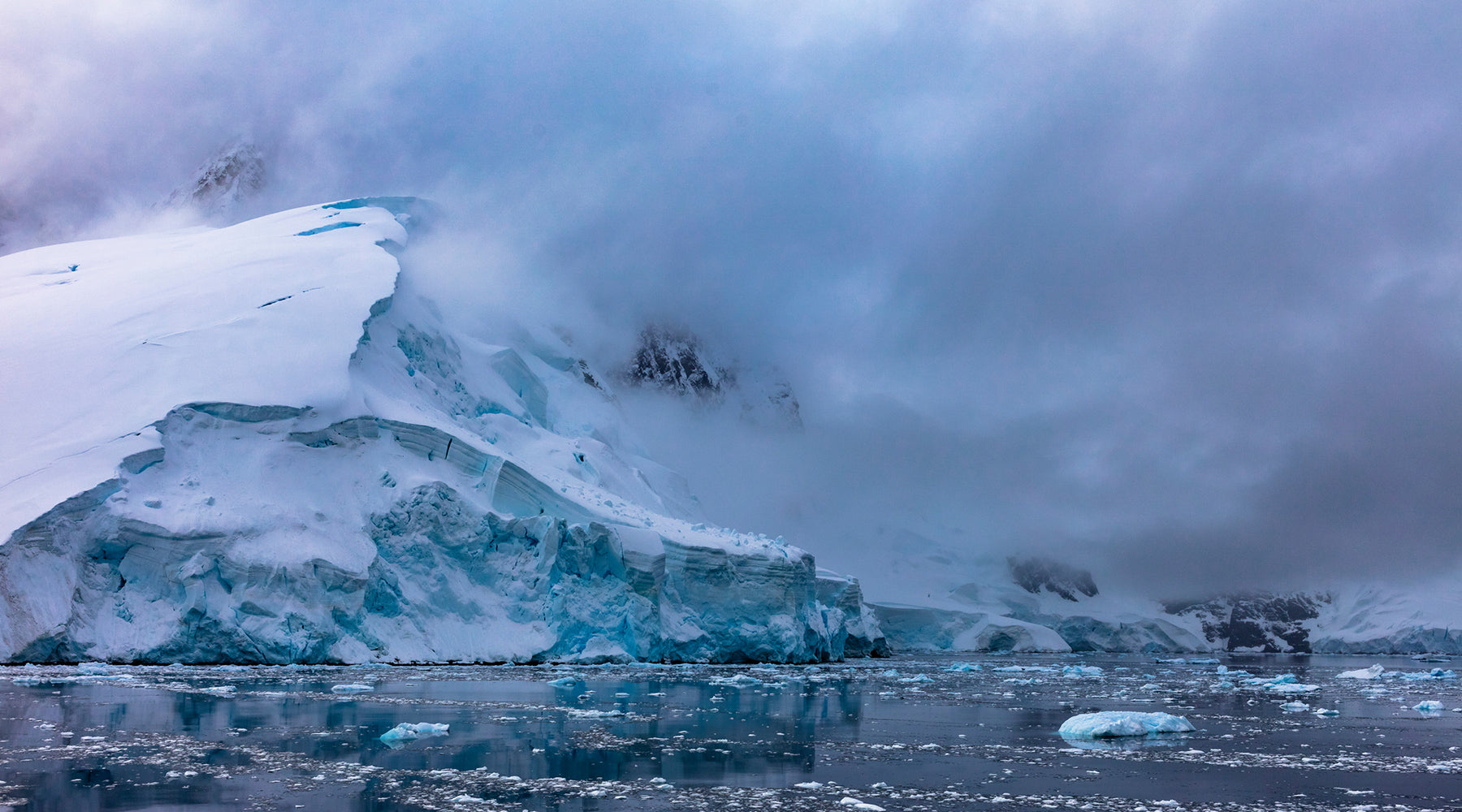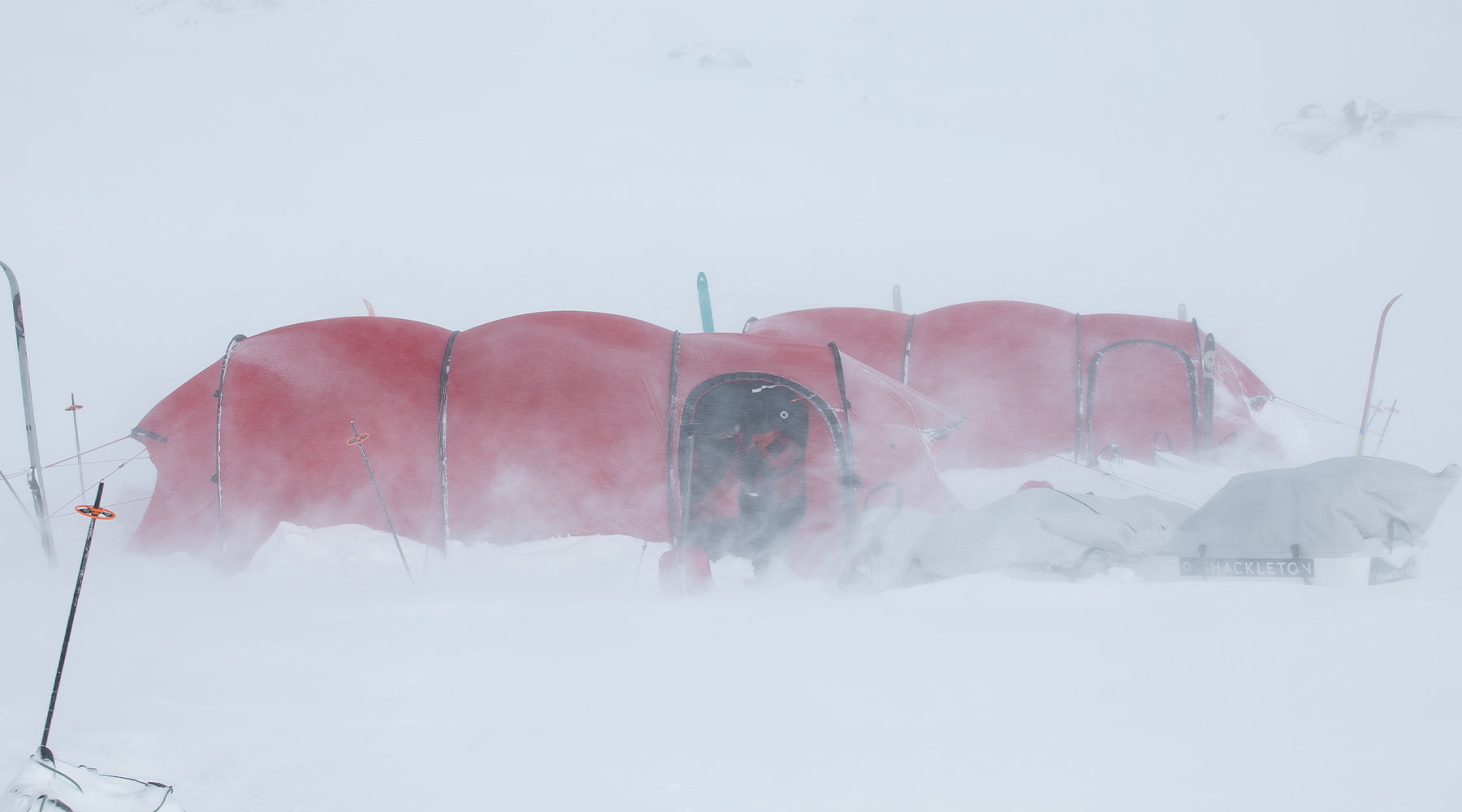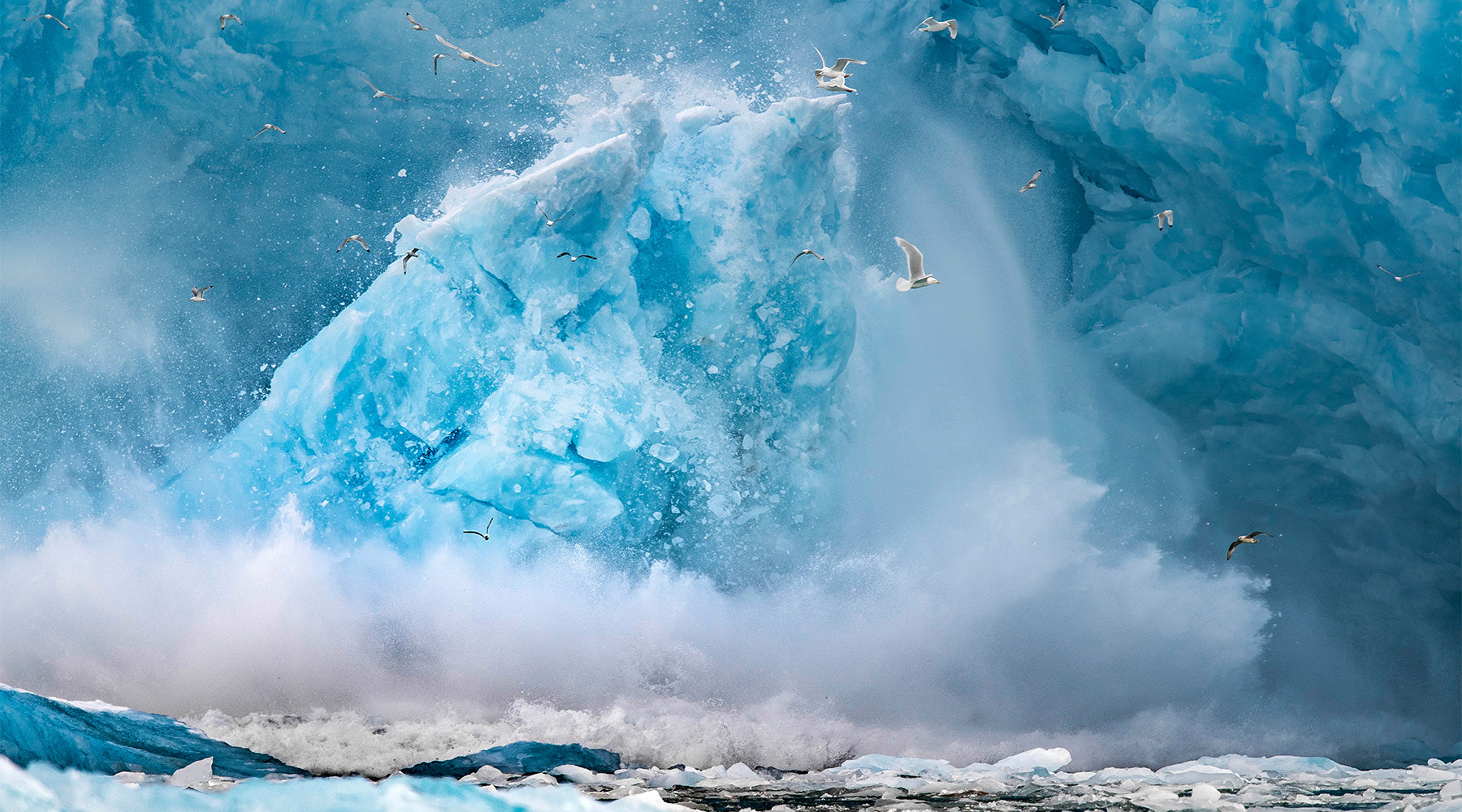
In Extremis Mindset // Why I Explore (3/3)
Why do explorers explore? And how do they deal with isolation in some of the most challenging environments on earth? In this three-part series, we speak to adventurers, endurance athletes and polar explorers who have removed themselves from civilisation for long periods of time and put their minds and bodies through gruelling experiences.
We currently all face uncertainty. And while exploration is self-imposed and meticulously planned, there are parallels that can be drawn between this uncertainty and exploring the lesser-known regions of the planet: the apprehension of entering the unknown; the feeling of isolation; the mental challenge of a more stripped-back existence; and how best to react to the situation to not only minimise stress and pain but take positives from the experience.
In a three-part series, we speak to adventurers, endurance athletes and polar explorers who have taken themselves away from civilisation for extended periods of time and put their minds and bodies through gruelling experiences, from traversing the frozen expanses of the Arctic and Antarctica to rowing the Atlantic and cycling the length of Europe. We put three questions to each of them to better understand the mindset of coping in challenging environments – in this segment, we ask:
3. Why do you explore?
Sean Conway, Endurance Athlete
I love who I am when I have a big project on. I thrive on big challenges. And you tend to quickly forget the misery – it’s the accomplishment and confidence you get from it that stays with you forever.
Ian Finch, Former Royal Marine Commando & Expedition Guide
For me, it’s all about narrative, story and the ‘why’. Most of my journeys are in wild and remote regions away from the push and pull of the modern world. The story is everything, and when you believe, as I do, in telling an authentic account of people that inhabit those wild landscapes, you will undergo any form of stress and pain necessary to tell it. At the same time, stress and pain, from a physical standpoint, hardens the body. When it’s all said and done, you'll know what you are capable of and you’ll have built deep-seated muscle memory not only in the fibres of your soul but in the synapsis of the mind. The mind moves the body, so stress and pain, once understood, harnessed and called upon, can be a potent weapon in life and on long arduous journeys.
Louis Rudd MBE, Polar Explorer & Former SAS Soldier
One of the greatest benefits of doing these journeys is a renewed appreciation for all the things we take for granted in life. Comfy beds, hot showers, freshly cooked food, etc. All of these creature comforts take on new meaning when you’ve been deprived of them for a while.
You learn a lot about yourself on these trips. Most people have some element of self-doubt in themselves and what they believe they are capable of. Doing these expeditions and overcoming adversity and being successful is a huge personal confidence booster. Suddenly the bubble of what your perceived comfort zone is doubles in size and you realise you are capable of so much more.
Hannah McKeand, Polar Explorer
I seek expedition experiences to soothe the craving, the longing, the need for empty places in my soul.
James Aiken, Solo Sailor
For me, adventure comes down to an immersion in nature, stripping back the protective veil of modern society and embracing the real world and its natural forces. Being alone, in remote places and far from help is the purest version of this and nothing else compares to the invigoration and fulfilment that come from such moments.
Ross & Hugo Turner, Adventurers
The moments. Each expedition we have been on has been amazing. But amongst all those moments there has been one defining moment that has made the trip worthwhile. It’s added value to your life that will positively change who you are for the rest of your life. Those moments could be seeing a shooting star race along the night sky; it could be watching the sun rise or set; or even meeting a local who stops you on your bike (this happened when we were in south America) and pray for you. The moment is usually very short, but you are fully aware that you’re in a ‘moment’.
Scott Sears, Polar Explorer
I think everyone has a natural curiosity as to their own limits and how far they are able to push themselves. It could be anything from a marathon to climbing a mountain. I think it is a normal thing for people to try and get as close to their breaking point as possible, before retreating back to some home comforts!
Martin Hartley, Expedition Photographer
Once I leave the front door of my home to depart on an expedition, I listen to the sound of the door closing and always the same question arrives: “Will I hear that sound again?”
Adventure is full of unknowns, the variables are too wide, too many and too far apart to predict all of them in advance. Once I have been dropped off, and I am on my own, that is the best moment of an expedition when everything ahead is unknown. Unlike normal day-to-day life, every hour of every day places you in a new situation. This kind of mental, physical and emotional stimulation is rich soil for feeling alive. Taking managed risks are part of the process of feeling closer to living than risk for the sake of risk. This is the feeling of adventure that attaches itself to every cell, every brain cell and blood cell and every heart string – this is adventure. The end game should be to amplify the feeling of being as close to nature as possible.
Ian Holdcroft, Shackleton Co-Founder & Endurance Athlete
Aside from the pleasure of seeing incredible places and scenery, being exposed to challenging situations, and the experience itself, I explore because it really helps me understand who I am and what makes me tick. I learn what my physical and mental comfort zones are, what my boundaries are, and how I respond when the unexpected happens. It helps me delve into my soul. It makes me feel truly alive.
Levison Wood, Explorer
For the new experiences, the chances to learn and to see new perspectives. There are tough times but when reflecting on the journey I always feel like it has been transformative, and that I have met some wonderful, different people who I would never have met had I sat at home on my sofa.
George Bullard, Explorer & Endurance Athlete
I am passionate about the outdoors, it can change lives – it has changed mine profoundly and I wish to let as many other people experience the thrill as possible. For me, what makes an expedition so exciting is the journey, the wildlife, the people, the friendships, the memories, the beauty of our surroundings that you wouldn’t otherwise have seen. It gives me a unique perspective on life that makes me feel small and insignificant in comparison to nature. The challenge and adventure fuels my curiosity about what lays in some of the world’s most remote corners. It is also slightly addictive!
Matt Pycroft, Expedition Filmmaker
The anthropologist, Sebastian Junger, writes that humans need three things in order to feel contentment. We need to feel competent at what we do, connected to others, and authentic in the way that we live our lives. Expeditions and extreme experiences, for me, provide all three things in a profound way. I have built bonds with people on expedition in the space of weeks that would otherwise have been difficult to do in years. Expeditions offer an opportunity to create genuine hardship, self-sufficiency and risk that is otherwise hard to replicate. There is a very good reason that corporate managers get sent on ‘adventure training courses’.
Guy Buckingham, Mountaineer
Adventure provides me with amazing opportunities to combine new and exhilarating experiences with a deeper understanding of my own abilities and limitations. It is on expedition that I find I am able to really live in the moment as the world I inhabit shrinks from one super connected multi-facetted network to a world dominated, for a short time, into simple decisions required to keep me and my partners alive. I have never come back from a trip without learning something new about the world, the people in it and myself.
Wendy Searle, Polar Explorer
There's something oddly satisfying about pushing your body and mind to the limits; you get to the end of 12 hours skiing and collapse into your tent, and somehow you have to do it all again the next day. Figuring out a way to make yourself get out of the tent the next day and not give up is a glimpse into the soul; it’s hugely stressful, having that battle with yourself every day, and I'm physically and mentally exhausted for weeks afterwards. But knowing you've pushed yourself beyond your comfort zone and achieved your aim is the best feeling in the world.
Mark Hannaford, World Extreme Medicine Founder
I have a restless, inquisitive mind – sitting still doesn't suit me. Exploring, adventuring, and expeditioning gives me excitement. The fun and challenge are often in the planning as much as the doing, delivering a sense of purpose concurrently. Expedition exposes you to experiences impossible to find in daily life, to seek that offers a sense of achievement in itself.


